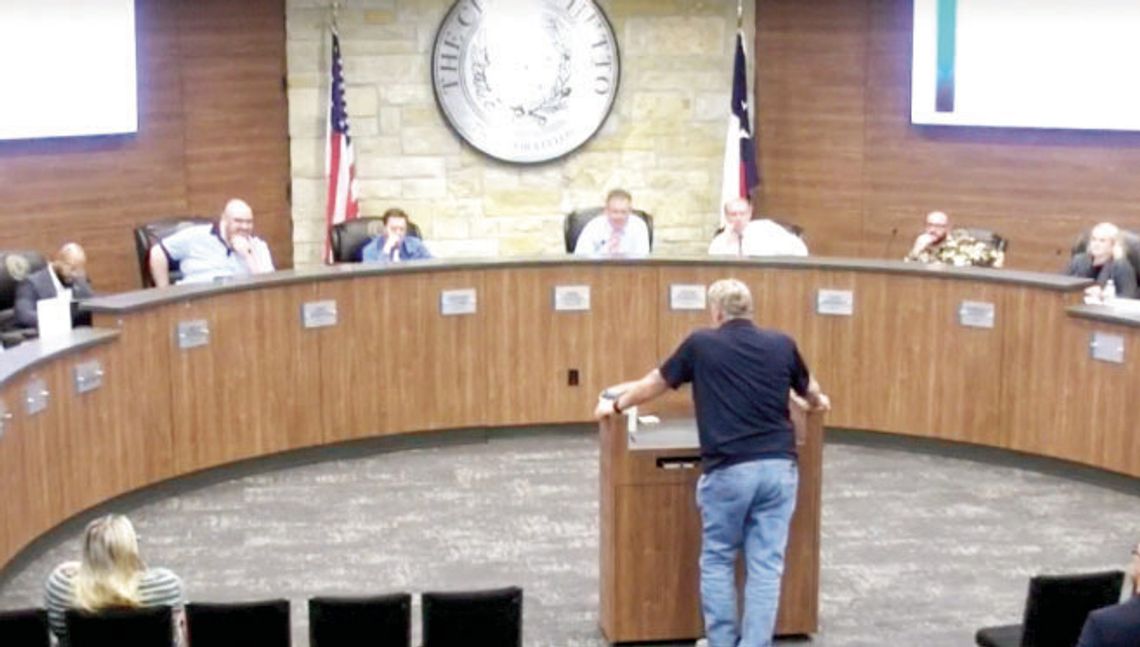HUTTO — Business operators during a public hearing Sept. 5 pushed back against potential increases in fees the city charges developers to help pay for infrastructure.
City staffers counter the proposed hikes help relieve costs to taxpayers to create and maintain infrastructure.
“As a builder, with what y’all are proposing potentially it would cost me $20,000 a lot for water and sewer,” said Hutto builder Rick Porterfield during the session. “Y’all need to really think about what you’re doing. You can stifle growth, or you can enhance it. But at $20,000 a lot for water and sewer impact, it would stifle me.”
Another speaker, Thomas Hencker with Lennar Corp., said people sometimes think developers absorb added fees, but generally those fees are tacked onto the sales price of homes. He mentioned the company stopped acquiring land in Pflugerville when that city greatly increased its fees.
“The developers tend to take all the cost and put it into the sale of the house,” he said. “These are future Hutto residents we are talking about imposing these fees on. It’s not necessarily coming out of the developer. It does create a hardship and a challenge that y’all should consider.”
The plan presented by city staff would update impact fees charged to developers for water, wastewater and transportation infrastructure. These fees are intended to pay the debt the city incurs to maintain and expand infrastructure as the city grows, officials said.
While the proposed changes to the fee schedule would lower the water impact fee from $8,832 to $6,808 per service unit, it would raise the wastewater impact fee from $2,788 to $12,670 per service unit.
The transportation impact fee would be based on the area of town where the development occurs. The existing rate is $784 for residential and $400 for nonresidential service units. The updated fee would be $991 to $2,774.
“Impact fees (allow us) to recover the costs associated with new facilities or facility expansions to serve future development,” reads a city report.
“These fees are utilized to assist in reducing the cost of needed infrastructure paid by existing customers through water and wastewater rates.”
The report said impact fees allow new development to pay a “fair-share cost” for the infrastructure expansion of the city. Without the updated fees, Hutto taxpayers would be contributing 88% to 93% of the cost of future infrastructure, depending on the service area.
City Council members raised concerns about the figures used for the projections.
Mayor Mike Snyder questioned discrepancies in the projected growth rate versus figures the council previously had been given.
Councilman Randal Clark expressed concerns the $80 million bridge over U.S. 79 on CR 132 was left out of the debt calculations.
“The county’s not going to pay for that bridge, which means the city’s going to have to pay for that. That’s the largest capital-improvement project for roads we have on the books, and you don’t even include it,” Clark said.
With that omission, the council could not act on the proposal, he added.
Leaders on the dais asked City Engineer Matt Rector to address the issues brought up and bring the items back for discussion at the Sept. 12 council meeting.
“We are in a pickle,” Snyder said. “We have to grow faster than we’ve ever grown just to meet the increases that we have budgeted. It puts me in a difficult position every time we vote on these things. I want us to grow, but if you grow so fast you can actually kill a good thing.”
Snyder noted that setting the rates either too high or too low could result in existing taxpayers taking on a larger burden of the costs.
Councilman Dan Thornton urged caution.
“We’re taking a guess and using all the information we have, but until we see the results, I think we’re going to be coming back and adjusting this fee relatively soon because we’re probably going to get it wrong one way or another,” he said.
“
We are in a pickle.”
-Hutto Mayor Mike Snyder





